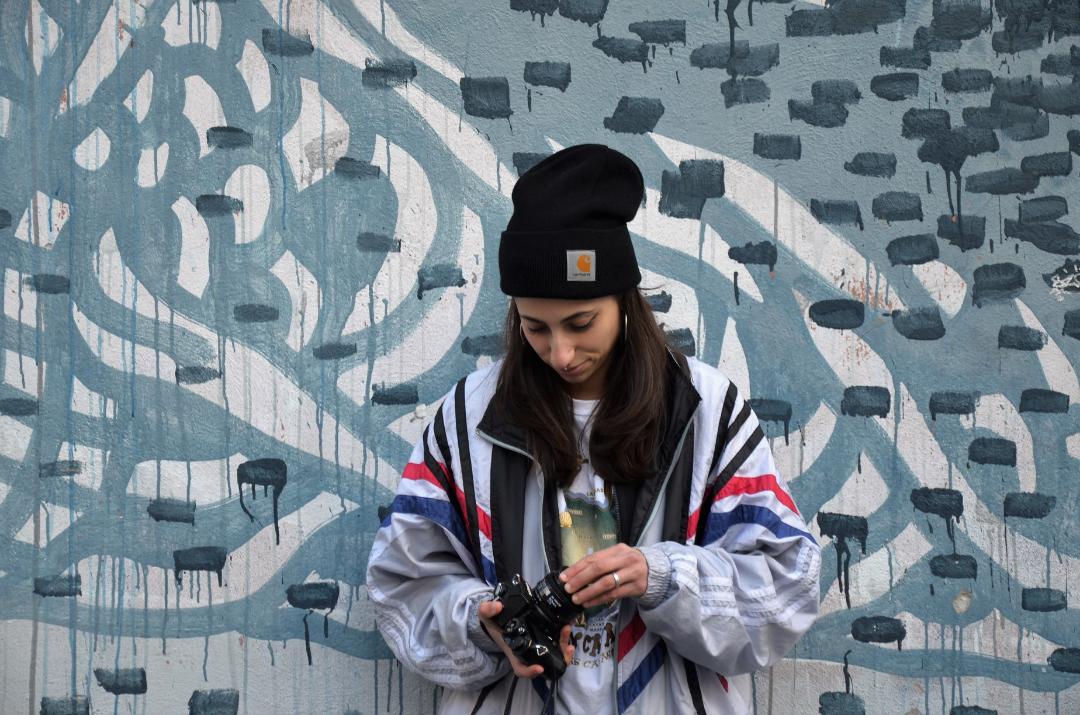Among the first works that struck me during my stay in Venice, on the occasion of the staging of the sixtieth Biennale, was precisely that of Iva Lulashi. In fact, I had the honor, not only, of seeing the Albanian Pavilion forming day by day before my eyes, but also that of seeing Iva at work together with her curator Antonio Grulli.

Pavilion of ALBANIA: Iva Lulashi, “Love as a glass of water”, 60th International Art Exhibition – La Biennale di Venezia, photo by Andrea Avezzù, courtesy: La Biennale di Venezia
Love as a Glass of Water is inspired by the “glass of water theory” which dates back to the Russian pre-revolutionary period and is linked to the radical and feminist thinker Alexandra Kollontai (St. Petersburg, 1872 – Moscow, 1952). It is a theory based on the idea of a sexual revolution in which impulses are seen as a simple human need that must be satisfied with the lightness and carefreeness with which we usually drink a glass of water. It had a great influence on the artistic and literary circles of those years, but was immediately opposed by the revolutionary political apparatus. The metaphor of the glass of water may seem at first glance to refer only to the simplicity with which it is drunk. But we must not forget that water is the basis of life, just like love.

Pavilion of ALBANIA: Iva Lulashi, “Love as a glass of water”, 60th International Art Exhibition – La Biennale di Venezia, photo by Andrea Avezzù, courtesy: La Biennale di Venezia
«Love, sex and desire are still today the last great force that is eternally revolutionary by its constitution, over which power, be it political, economic or ideological, is unable to firmly impose its control. It is a suprapolitical and existential force, similar to that of water: elusive, sometimes peaceful, but capable of breaking down any obstacle». So curator Antonio Grulli declared, and this is exactly what we witness once we cross the entrance threshold of the exhibition. The pale colored walls immediately put us at ease and lull us into an intimate journey that we know well: the warmth of a home that reminds us of our own, but only at first sight. Soon, the paintings on the walls and the arrival in the bathroom, remind us how our movement within these walls is a true voyeuristic act, between the desires and impulses of someone who is not us, or perhaps ultimately yes. We are looking at the most secret and intimate place of a third person who, after all, is not far from us. Love, desire and passion emerge from each painting in an extremely significant way. The woman’s body unequivocally dominates all the represented scenes. Feminism, freedom and poetry. To find out more, I decided to ask Iva Lulashi about some particularities of her extraordinary exhibition.

Pavilion of ALBANIA: Iva Lulashi, “Love as a glass of water”, 60th International Art Exhibition – La Biennale di Venezia, photo by Andrea Avezzù, courtesy: La Biennale di Venezia
Sara Papini: How did the idea of playing with the concept of your home and intimacy come about?
Iva Lulashi: A year ago, I participated in Sottopalco, a collective exhibition in the disused understage of a theater. On that occasion, I immediately observed how the external space, that of the walls of the building’s bathrooms, amplified the resonance of the internal space, that of the work, giving it an even more intimate charge. Furthermore, my home-studio, a private space for artistic research, is at the same time a place for sharing and meeting: here, I sometimes organize exhibitions of artists I wish to make known. The reconstruction of some of the rooms of my home-studio inside the Albania Pavilion, therefore, emerged as a natural extension and organic continuation of this vision.

Pavilion of ALBANIA: Iva Lulashi, “Love as a glass of water”, 60th International Art Exhibition – La Biennale di Venezia, photo by Andrea Avezzù, courtesy: La Biennale di Venezia
What was it like representing the Albania pavilion at the Biennale?
Working towards the reproduction of a space that is familiar to me, such as my home-studio, meant that the preparatory weeks were part of an absolutely fluid and harmonious process, despite the frenetic and agitated pace of the work activity. This is supported by the fact that the entire working group was already linked by a deep relationship of mutual esteem and friendship, even before the invitation to participate in the Biennial. Furthermore, their absence of direct ties (family or personal history) with the country I represent has allowed my gaze to be new and to be reconstructed in a shared process of research and materialization of the theme “Foreigners Everywhere”.
Info:
Iva Lulashi, Love as a Glass of Water
curated by Antonio Grulli
20/04/2024 – 24/11/2024
60esima Biennale di Venezia, Arsenale, Padiglione Albania
labiennale.org

She was born in Genoa but currently lives in Bologna, the city where she graduated from CITEM with a thesis on video art. She works in the world of events in the production sector and is an assistant professor of Visual Studies at UNIBO.






NO COMMENT